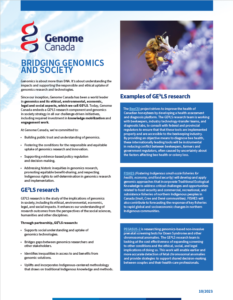
ACCESS & REIMBURSEMENT TO GENOMIC TESTING. WHAT YOU NEED TO KNOW
Access and Reimbursement for Genomic Testing: What You Need to Know
IntroductionGenomic testing is a vital tool in precision medicine, providing personalized insights into treatment options by analyzing the unique genomic makeup of a patient’s tumour or condition. Unlike traditional approaches that treat cancer or other diseases based solely on their location or general characteristics, genomic testing enables healthcare providers to identify specific mutations and biomarkers driving the disease. This precision can make the difference between receiving an effective, targeted therapy or enduring a less suitable, one size fits all treatment. However, despite its transformative potential, accessing genomic testing in Canada is not straightforward.
Navigating access and reimbursement for genomic testing is a complex process, as availability and funding vary significantly across provinces and territories. People living with cancer may face disparities in their ability access genomic testing, depending on where they live rather than their medical needs. Financial barriers further complicate the situation, as some people may want to have more comprehensive genomic profiling done and are required to pay out of pocket when public funding or private insurance coverage is unavailable.
This resource is designed to help people living with cancer and their families better understand the current state of genomic testing in Canada. It provides an overview of how genomic testing is funded, the challenges and inequities patients may encounter, and actionable steps to advocate for change. By working together, we can push for a future where precision medicine is accessible to all Canadians, regardless of where they live or their financial situation.
What Is Genomic Testing?
Genomic testing analyzes the DNA of cancer cells to identify genetic changes or biomarkers that drive tumour growth. These insights allow healthcare providers to:
Match patients with targeted therapies.
Predict how tumours may respond to specific treatments.
Identify clinical trial opportunities tailored to the tumour’s unique profile.
Unlike genetic testing, which looks at inherited genes, genomic testing focuses on the tumour itself. It’s about treating the cancer based on its blueprint—not just where it happens to be in the body.
Why Genomic Testing Matters
Genomic testing is a game changer for cancer care -
It reduces the guesswork by identifying treatments most likely to work.
It spares patients from unnecessary treatments and their side effects.
It opens the door to clinical trials offering innovative therapies.
However, access to this life-saving tool varies across Canada, leaving too many patients without options.
1. Understanding Genomic Testing Access in Canada
Provincial Variation - Testing access and funding differ widely across provinces.
Eligibility Criteria - Access may depend on cancer type, stage, and specific treatment pathways.
Out of Pocket Costs - Some patients pay privately for tests not covered by their province.
What You Can Do
Speak with your healthcare provider about eligibility and available funding options.
Connect with an advocacy group
2. The Reimbursement Landscape
Genomic tests are often funded as part of a companion diagnostic process (approved with a specific treatment).
Hospitals will use Laboratory Developed Tests (LDTs) - this is a type of in vitro diagnostic test that is designed, manufactured, and used within a single clinical laboratory. Unlike commercial diagnostic tests, which are mass produced and sold as standardized kits to multiple labs.
Commercial tests like Foundation medicine’s Comprehensive Genomic Profiling (CGP) test are not reimbursed, but are available at your own expense.
Laboratories may only be required to test for specific biomarkers, these tests may not provide all the necessary diagnostic information to create a treatment plan that encompasses all possible treatment solutions.
Advocacy and collaboration is critical to expanding reimbursement frameworks for broader access.
What You Can Do:
Ask your healthcare provider or cancer care team about your options.
Contact advocacy organizations for guidance on accessing funding.
3. Advocacy and Action: Steps You Can Take
Share Your Story: Personal stories can be powerful in influencing policymakers.
Reach Out to Legislators: Write to your MNA/MPP urging better access to genomic testing.
Join Advocacy Campaigns: Participate in initiatives like #KNOWvember #PMAM to amplify the call for better access to precision medicine and equitable testing
Educate Yourself: Stay informed
Resources to Help You Advocate:
LEARN MORE



